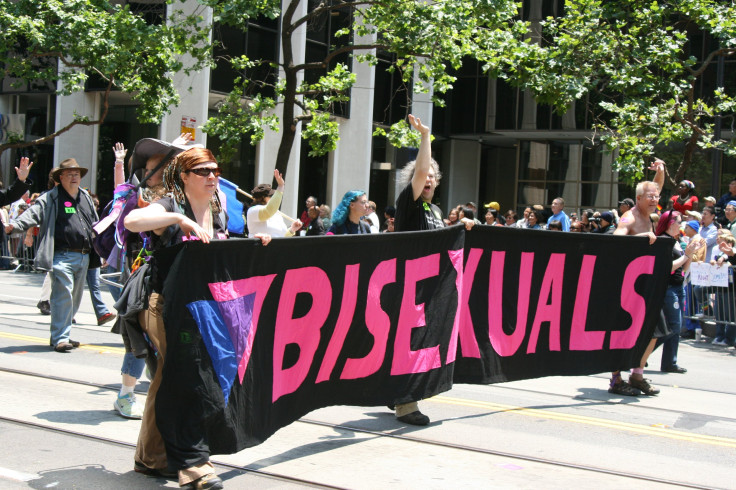Young Questioning And Bisexual Women More Likely To Struggle With Eating Disorders

The burdens of being in the sexual minority may leave young people, especially women questioning their sexual orientation, more susceptible to an eating disorder, a recent study published in Eating Behaviors has found.
Surveying more than 2,000 people from the ages of 14 to 24 during a routine visit to their primary care physician, the Drexel University researchers found that women who identified as bisexual or unsure of their sexual orientation were more likely to report symptoms indicative of an eating disorder than either strictly straight or homosexual women; whereas both bisexual and homosexual men reported more symptoms of disordered eating than straight men.
“The results of this study suggest there may be notable differences in disordered eating symptoms across LGBQ persons,” said lead author Annie Shearer, outcomes research assistant for Drexel University’s Center for Family Intervention Science in the College of Nursing and Health Professions, in a statement released by the university. “Given the severe physical and emotional repercussions of eating disorders, these findings underscore the need for primary care physicians to ask about both sexuality and disordered eating symptoms during routine visits.”
Interviewing their subjects through the “Behavioral Health Screen — a web-based screening tool that assesses psychiatric symptoms and risk behaviors,” Shearer and her colleagues aimed to break unfamiliar ground with their study.
“While there is a lot of research indicating gay and bisexual men exhibit higher rates of eating disorders than heterosexual men, findings have been mixed with respect to women,” Shearer said. “Moreover, bisexual and — to an even greater degree — questioning persons are often excluded from these studies.”
While they weren’t surprised by their findings when it came to men, they were taken aback by what they observed in women. Not only were bisexual and questioning women more likely to suffer from disordered eating, but there was no noticeable difference between lesbian and straight women seen. “These findings are contrary to previous assumptions that same-sex attraction plays a protective role against eating pathology in females,” the authors concluded.
Though the study can’t pinpoint a definitive cause behind their conclusions, it does line up well with previous research showing that bisexual individuals face difficulties unique among the LGBQ community. Advocates have pointed out that the existence of bisexuality is pervasively dismissed, ignored, or thought of as fake by many in society, even by those who identify as homosexual.
Eating disorders are, of course, tied to a number of complex factors that interact with one another, but it appears likely that the isolation that bisexuals oftentimes feel as a result of that dismissal may only exacerbate their mental health issues.
Source: Shearer A, Russon J, Herres J, et al. The relationship between disordered eating and sexuality amongst adolescents and young adults. Eating Behaviors. 2015.



























